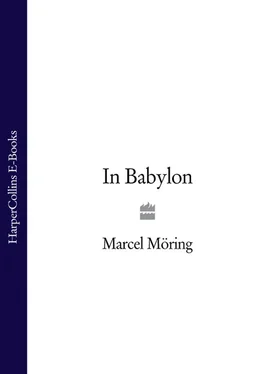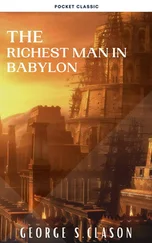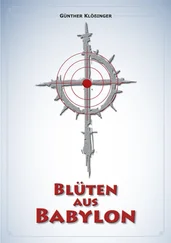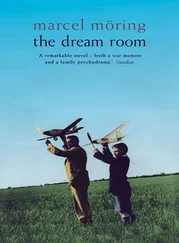My group portrait.
I call it ‘Travellers’. Because that was what we were. Each and every one of us. We came from the East, we travelled to the West. Uncle Chaim and his nephew Magnus, my most distant forefathers, lived in the region that now forms the border between Poland and Lithuania. There, in the dense primeval forest, where the bison still roamed and wolves and bears waylaid those who travelled from one village to the next, they made clocks. Whenever my grandfather, my Uncle Herman, or Emmanuel, my father, wished to explain or justify our presence in this place or that, they would say: ‘Clockmakers, every one of us. Travellers. Came from the East, on our way to the West.’ As if to say that the East was a sort of mythical birthplace, the womb of our … line, and the West, our Occident, the destiny towards which we, sometimes willingly, sometimes reluctantly, were headed. Travellers. Uncle Chaim journeyed through the kingdom of the night, from then to now, and later, in the company of his nephew. Magnus left the East, roamed for twenty-one years all over Europe, in search of Holland. Uncle Herman led us, my father and my mother and my sisters and I, out of the old Europe, into the New World, and never stopped travelling. Manny brought us from the east coast of America to the west, from the edge of history to its heart. I myself never had a home and Zeno, my young brother, removed himself from the face of the earth.
They’re all dead. And all of them, I have known and loved. Uncle Chaim and his hazy nephew Magnus, too, even though, by the time I was born, they had been history for nearly three centuries. They’re the only ones who are still with me.
I used to be awakened by voices in the night, cries that were so clear and sounded so close that they echoed in my head long after I had sat up in bed. ‘Nathan!’ My name, clear as day. ‘NATHAN!’ But no matter how often I was jolted awake, looked around, turned on the light, or didn’t, I never saw a thing. For a long time I thought it was God calling to me across the black waters of darkness and sleep. I’m the sort of person who bears such possibilities in mind.
It wasn’t until I was about ten years old that I discovered why I was hearing those nocturnal cries. We were living in the camp on the Hill, in New Mexico. In our cramped wooden house, I shared a room with Zeno, who had just turned one.
I was awakened by a creaking sound. When I looked up I saw an old man sitting at the foot of my bed. There was a full moon and its bluish light bounced off the hard desert ground, through the curtainless windows, into my room. One side of the old man’s body was sharply defined and I could see that he was wearing a shabby black suit. His back was slightly bent. Something glistened in his eye, a small, gleaming tube that was aimed at his lap.
‘Bah,’ he said. A shard of moonlight shot across his stubbled jaw as he turned his head to me. He grinned broadly and raised his eyebrows. The tube fell out of his eye, he caught it without looking. ‘Too dark. Can’t see your hand before your eyes. Nice clock you’ve got there.’ He shifted his gaze to my night table. I looked sideways, at the green fluorescent arms of Mickey Mouse.
I didn’t have to ask who he was. He didn’t have to tell me. Great-Great-Grand-Uncle Chaim, no doubt about it.
‘How are you, my boy?’
‘Fine,’ I said. ‘Thank you.’
‘Magnus here yet?’
‘No,’ I said. ‘I haven’t seen him.’
‘Young people …’ He winked. Because he smiled at the same time, his face turned into a bluish white wad of paper, a ball of creases and shadows.
There was a shuffling noise in the receding darkness and out of the wall came the ghost of a wanderer. He emerged from what seemed, for a moment, to be a forest path, and all at once he was standing in the middle of the room.
‘Speak of the devil …’ Uncle Chaim said.
Magnus looked around and scratched his head.
Uncle Chaim pursed his lips, shook his head, and gave me a meaningful glance. ‘Young people,’ he said again.
‘I’m young, too, you know,’ I said.
He stared at me, and then smiled. ‘You,’ he said, ‘are the eldest.’ He turned to Magnus and raised his head. ‘Have the two of you already met?’
Magnus, who was busy winding up the propeller of the biplane hanging under the lamp from a piece of fishline, jumped. ‘Nathan, isn’t it?’
I nodded.
‘Magnus Levi,’ he said, ‘Currently going by the name of Hollander.’
Uncle Chaim chuckled.
I was now sitting straight up in bed, my hair, a wild shock, my face pale with sleep.
‘What are you looking at?’ Uncle Chaim asked.
I turned around and saw that I was still sitting in the same place, but that at the same time, I was standing in the room looking at myself. ‘Is that me?’ I asked. I looked back at the bed and saw the little boy sitting there and rubbing the sleep out of his eyes. Zeno lay in his own bed against the opposite wall, sound asleep.
‘Happens from time to time,’ said Uncle Chaim. ‘They’ll think up a name for it some day. No doubt that joker from Vienna could explain it.’
‘Calling Freud a joker is not only unfair, it disclaims the great strides he made in …’
‘Oh, Magnus, shut up.’
‘Sorry.’
Here I was, in my room, surrounded by the things that made up my universe, the airplane with the rubber-band wind-up motor that my father had built, the Mickey Mouse alarm clock with radioactive hands, two fossilized sea urchins, a cupboard full of books, and a map of the world on which I kept track of the Allies’ progress with tiny flags, here I was and I was twice myself and in the company of ancestors who had been dead for three centuries.
‘We can go about this in two ways,’ said Uncle Chaim. He was fiddling with the copper tube that had fallen from his eye. It rolled between his thumb and forefinger, from top to bottom and back to the top and when it was on top it spun round on its axis and rolled back down again. Warm yellow patches of light shot across its surface, liquid stars that seemed to float between his fingers. ‘We decide on what this is and you tell us what you think of it, or we forget the explanation and pretend this is all perfectly normal.’
‘Uncle,’ said Magnus, ‘I don’t want to interfere …’
‘Have you ever noticed, Nathan, that people who are about to interfere always begin by saying that they don’t want to interfere?’
‘… but perhaps it would be a good idea if we first told the boy how we got here to begin with.’
Uncle Chaim tilted his head to one side and looked at me expectantly.
I shrugged.
‘Do you think you’ve gone mad?’
‘No,’ I said.
‘Do you think that other people will think this is normal?’
I shook my head.
‘Then that’s that,’ said Uncle Chaim. ‘Have you seen this?’
I stepped forward and saw, for the first time, what he had been working on when I awoke. In the palm of his left hand lay an open pocket watch. I came closer and looked at the jumble of cogs. A wisp of wire, fine as a hair, was sticking up through the spokes of a tiny slender wheel.
‘Overwound. Always the same. Scared to lose their grip on time, so they wind up their watches like they’re wringing out the laundry.’
Magnus bent over Uncle Chaim’s hand. ‘An anachronism,’ he said. ‘This is a waistcoat-pocket watch, late nineteenth century.’
Uncle Chaim turned to me and said, ‘Magnus is very particular about these things.’
‘Anachism …’
‘Anachronism,’ said Magnus. ‘That’s when something turns up in the wrong time …’
‘Like us,’ said Uncle Chaim.
‘For example,’ said Magnus irritably, ‘if you read a story about the eighteenth century, and there’s a car in it.’
Читать дальше












